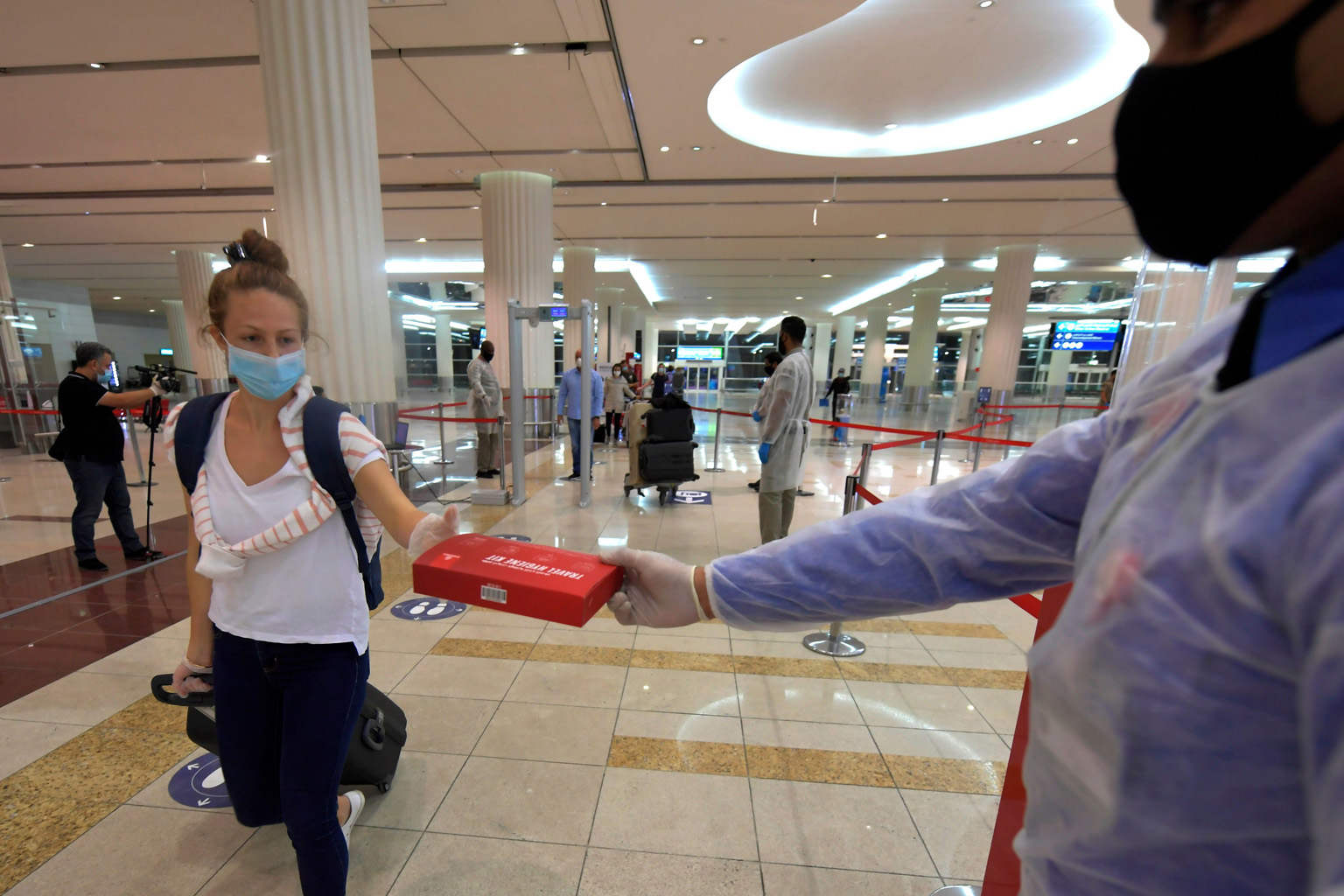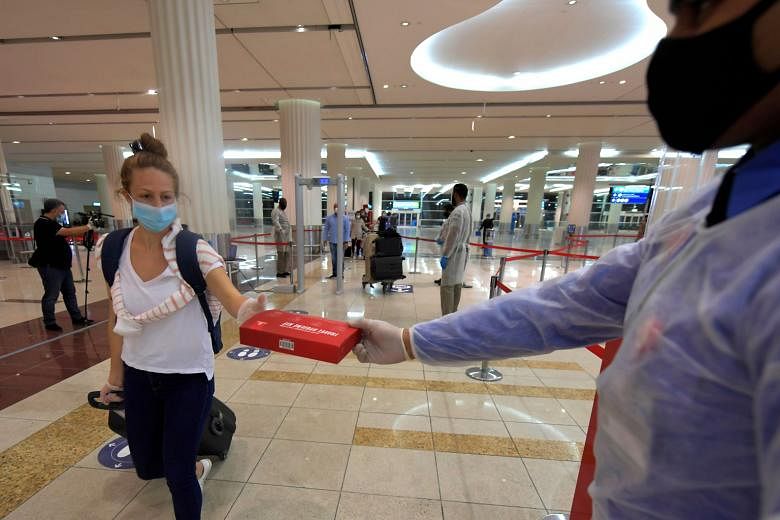Last month, Emirates became the first airline to trial pre-boarding Covid-19 tests.
It gave a battered industry some hope that a solution might have been found to make flying safe again, even as the coronavirus continued to spread and kill.
Emirates' passengers had their fingers pricked and within 10 minutes, the results were out.
But the test was not to confirm infection. Instead, it was to determine if the traveller had had Covid-19 and built up antibodies.
With an accuracy rate of just 30 per cent and a positive result no guarantee that one was immune to catching the disease - or spreading it - the testing was stopped.
Since the coronavirus was announced to the world on Dec 31, over 5.4 million people have caught Covid-19 and more than 344,700 have died.
As countries shut their borders and focused on tackling the pandemic domestically, the air travel sector has paid a high price.
According to industry consultancy OAG Aviation Worldwide, airlines are now offering nearly 30 million seats weekly - a fraction of the 110 million weekly seats a year ago.
The International Air Transport Association (Iata) expects passenger revenues for global carriers to fall by US$314 billion (S$447 billion) this year; 55 per cent down from last year.
This is assuming a gradual easing of restrictions in domestic markets from the second quarter of this year, followed by regional and intercontinental markets.

As countries start to emerge from lockdowns, airlines have been quick to react, with a flurry of recent announcements on flights being progressively resumed and, more critically, measures to ease travellers' concerns.
Many, including Singapore Airlines (SIA), require all crew and passengers to use masks. Emirates has gone a step further. Besides the now-aborted test, its cabin crew wear full personal protective equipment, including a safety visor, mask and gloves.
Airport authorities and airlines have spoken about safe distancing at airports, self-service check-ins and prepackaged food on board.
All well and good, but will passengers return and will governments let more flights resume?
BUBBLES, BRIDGES AND CORRIDORS
Domestic travel is less of an issue in most countries because such flights do not require approval from foreign governments and regulators.
The challenge is in reopening international air travel, and it is in this context that "bubbles", "bridges" and "corridors" are being discussed.
The idea is the same, and it is how two or more countries with enough trust in one another can allow their residents relatively unrestricted travel without the need for a long, or any, quarantine period upon arrival.
Professor Teo Yik Ying, dean of the Saw Swee Hock School of Public Health at the National University of Singapore, said such arrangements can be "quite viable and attractive", but there will be operational and, in some cases, political challenges.
For such arrangements to work, countries must first be able to control infections domestically.
They must be open to share data on infection levels and testing, as well as contact tracing and isolation strategies. "This will all be underpinned by trust between governments," he said.
The first such travel bubble materialised last week when the Baltic states of Lithuania, Latvia and Estonia opened their common borders. Citizens and residents of the three nations can now travel freely within the region. Another possible bubble is reportedly emerging among France, Germany and Austria.
Nearer home, China and South Korea have agreed on a system to allow some business travel to resume, but not without cost and inconvenience to travellers.
South Korean business travellers must undergo a health examination at a designated medical institution at home and get a certificate that confirms they have tested negative for Covid-19. In China, they are tested again. A similar procedure will be required for Chinese business travellers.
China is reportedly having similar discussions with Singapore. The Republic is also believed to be in talks with Australia and New Zealand to allow for some travel restrictions to be eased.
But such discussions are complicated. For example, who pays for the testing? What happens if a traveller who lands in a country tests positive for Covid-19? Will the airline be willing to fly him back? Where will he be treated?
IMMUNITY PASSPORTS
The idea of an "immunity passport" could play a key role in facilitating the restart of air travel, Iata has said.
If a passenger can be documented as having recovered from Covid-19 - and presumably immune to the disease - there would be no need for temperature or other forms of health screening to protect him.
British Health Secretary Matt Hancock said last week that the government was looking at "systems of certification" for those who had antibodies. But he acknowledged that he was not yet in a position to say that this group was necessarily immune.
Prof Teo noted that it is still unproven that someone who has been infected before is protected from re-infection. "Even if there is indeed some form of protection, we don't actually know what is the longevity of this immunity," he said.
With so many unknowns, it will be very difficult for countries to say "let's have an internationally agreeable scheme based on immunity passports", he said.
The threat of a second wave of infections looms for countries that exit from lockdowns.
In Singapore, the Government has said that the number of cases could increase when the circuit breaker ends on June 1 and more people return to workplaces.
There is also the concern of asymptomatic spread.
Singapore, like all other countries, must decide what works and what does not.
Even as airlines and airports pull out all the stops to get more planes off the ground and bums on seats, the industry is looking at a time lag of three years at least before business returns to pre-Covid days, say stakeholders and observers.
Recovery will be slow and costly, and the price-sensitive leisure travel market will be the last to bounce back.
That weekend trip to Bali or Bangkok? It is not happening any time soon.












